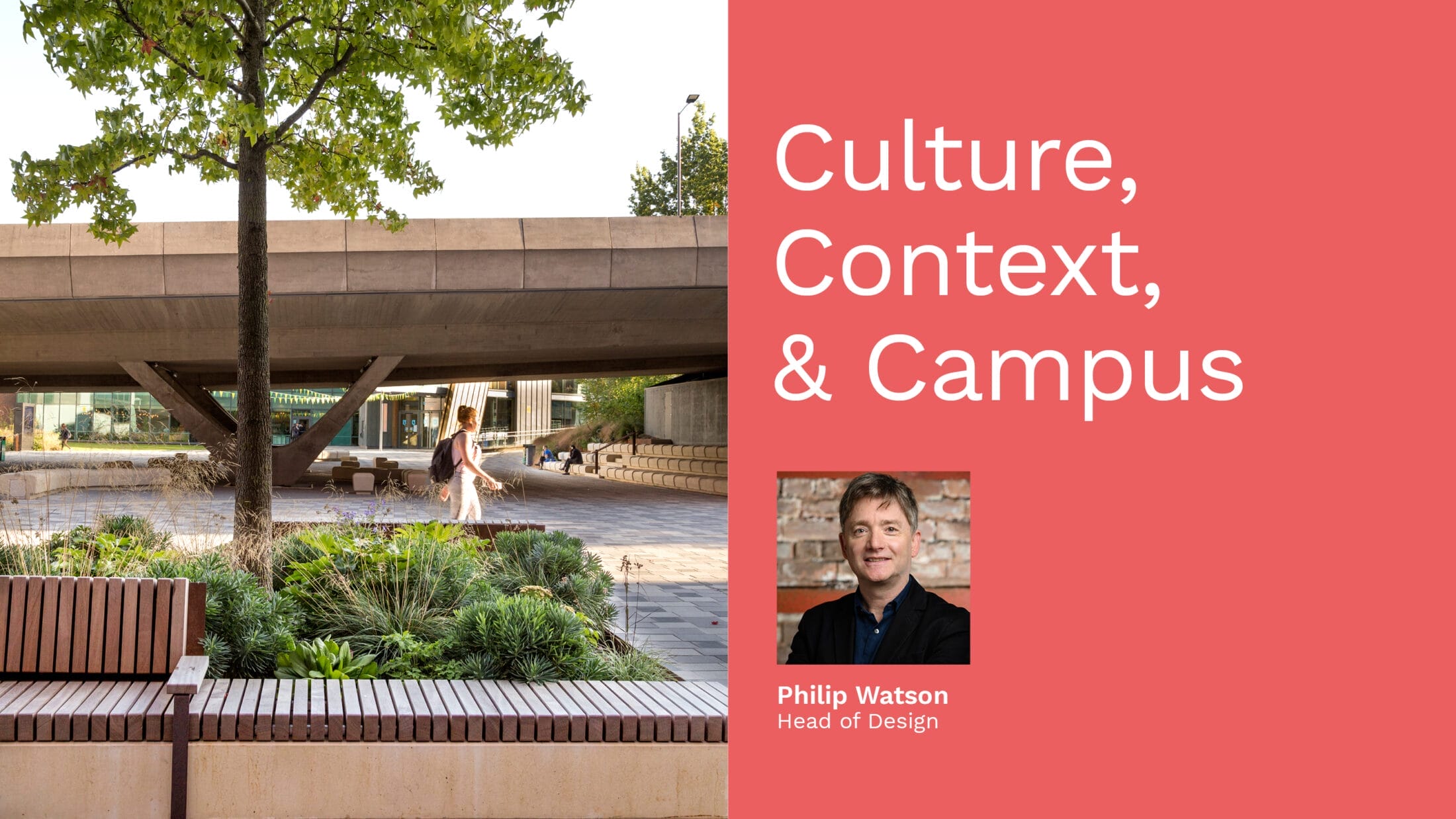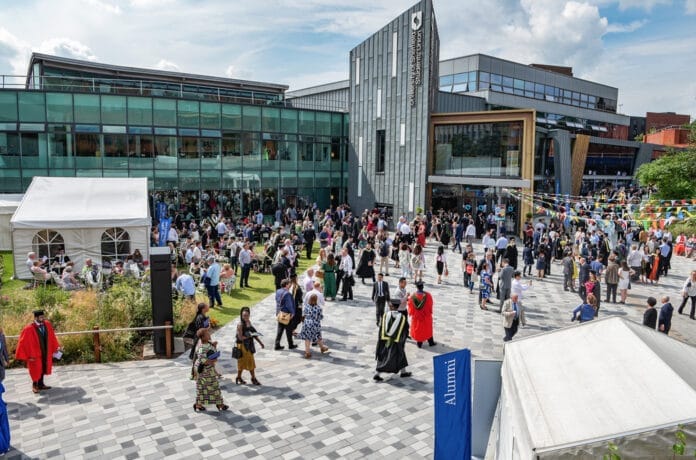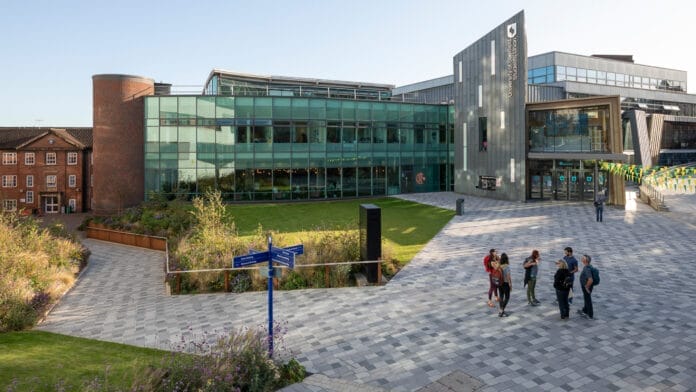
The ‘sticky campus’ has become a common expression to describe the ambition of many universities to provide an environment that attracts and retains student presence on campus. Underpinning this is the belief that the student experience is significantly improved by socialisation, that health and wellbeing and education outcomes are all enhanced through social learning.
Space defines the culture of an organisation.
Creating this attractive environment for students and staff is fundamental to the success of a university. This is the key challenge for estates teams who also grapple with planning challenges around the physical condition of the estate and the institution’s environmental sustainability goals, as well as keeping pace with changes in pedagogy and digital technology. Under constant pressure to maintain the estate, these immediate pressures can sometimes override a really important factor that defines the university experience: how the campus makes us feel.
Space defines the culture of an organisation. The campus environment sets the tone and speaks to us about how inclusive and egalitarian an institution is and wants to be. It tells us what the institution’s priorities are, whether its vision resides in a prospectus or in the fabric of its facilities. For many alumni, university retains a special place in our hearts long after we have attended them. There is little doubt that this is in large part due to the sense of place and belonging that the campus engenders. Consequently, considering the emotional response to the environment should not be underestimated.


It is not only the ‘student experience’ that should be regarded in developing the campus.
At the University of Sheffield, the consideration of how people feel on campus is very evident and is reflected in the University consistently scoring exceptionally high in student satisfaction surveys. Our recent work to revitalise the underutilized main campus Concourse, a fluid space that flows under the A57, binding teaching accommodation to support services, performance venues and the student union, is a case in point. What was a transitory space without identity has been transformed through a series of thoughtful urban interventions that have brought purpose, vitality and intimacy to the heart of the campus. Now, the landscape feels like an extension of the learning environment, encouraging social interactions and supporting a diverse range of activities. Planting and materials have been carefully selected to reflect the University’s sustainability ambitions and working with lighting designers at Arup and local artists has brought joy and celebration as well as making the space much safer for everyone who accesses it. Sticky and secure.
It is not only the ‘student experience’ that should be regarded in developing the campus. The campus also speaks to its context – the towns and cities where an institution resides. So, while universities may have international reputations and ambitions, they also have a civic role to play. Accessibility, safety, and amenity for support staff who are often drawn from an institution’s local communities need to be considered. What, for example, is the experience of the campus for facilities maintenance staff who work unsociable hours?
Our mantra is, ‘Thoughtful design to make better places for people.’ It is this prioritisation of people in the built environment that sets us apart. To support this outlook, we have developed tools and processes that keep pulling us back to what’s really important: the human experience. We seek the emotional intelligence behind the brief for the physical estate. We focus on evolving a contextual response that enhances the character of a place, that sets the tone for future conversations between the campus and those who inhabit it.




